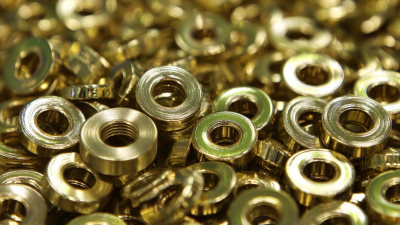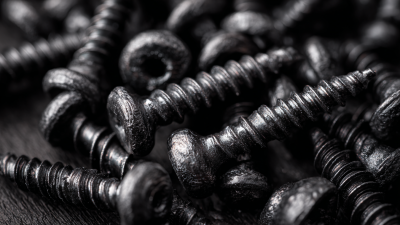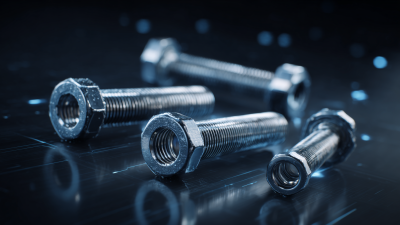When it comes to home improvement projects, the importance of using the right materials cannot be overstated. One crucial element that plays a significant role in the durability and effectiveness of your drywall installations is Dry Wall Screws. As we approach 2025, the market is filled with a plethora of options, making it essential to identify the top choices that will not only meet but exceed your expectations. In this guide, we will delve into the top 10 Dry Wall Screws you need for your next home improvement endeavor.
Choosing the appropriate Dry Wall Screws can mean the difference between a seamless, long-lasting finish and a project fraught with issues. With advancements in technology and manufacturing, modern screws offer enhanced features that cater to different drywall applications, from lightweight to heavy-duty installations. Whether you are a seasoned DIY enthusiast or just starting your home improvement journey, understanding the diverse offerings available in the market will empower you to make informed decisions. Join us as we explore the best Dry Wall Screws of 2025, ensuring your projects stand the test of time while maintaining structural integrity.
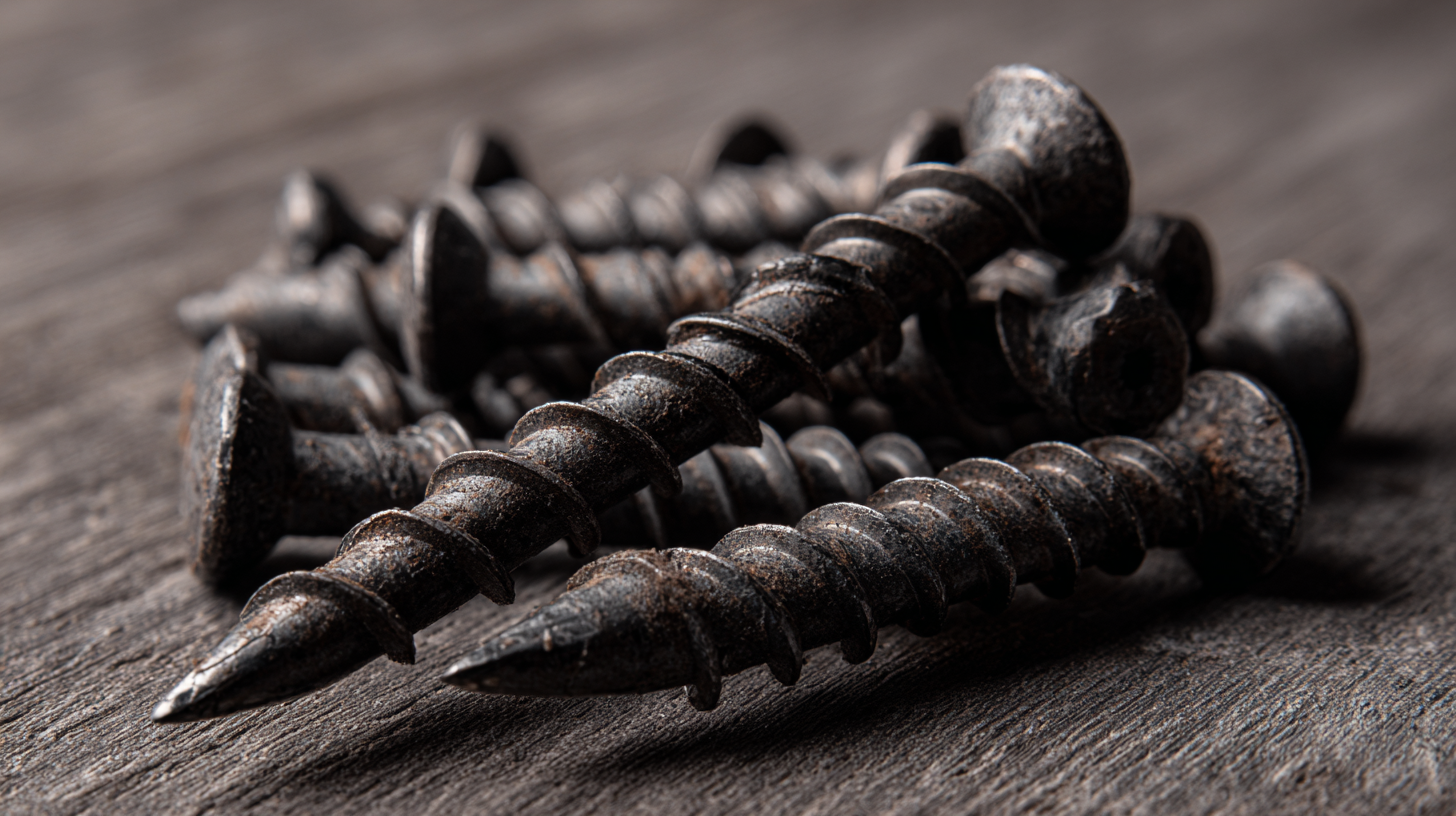
When embarking on a home improvement project, choosing the right materials can make all the difference, and this is especially true when it comes to drywall installation. For 2025, a selection of top-quality drywall screws stands out for their durability and effectiveness, ensuring your projects not only meet aesthetic standards but also structural integrity. The best screws are designed with specific features such as sharp tips for easy penetration and corrosion-resistant coatings, making them ideal for various environments.
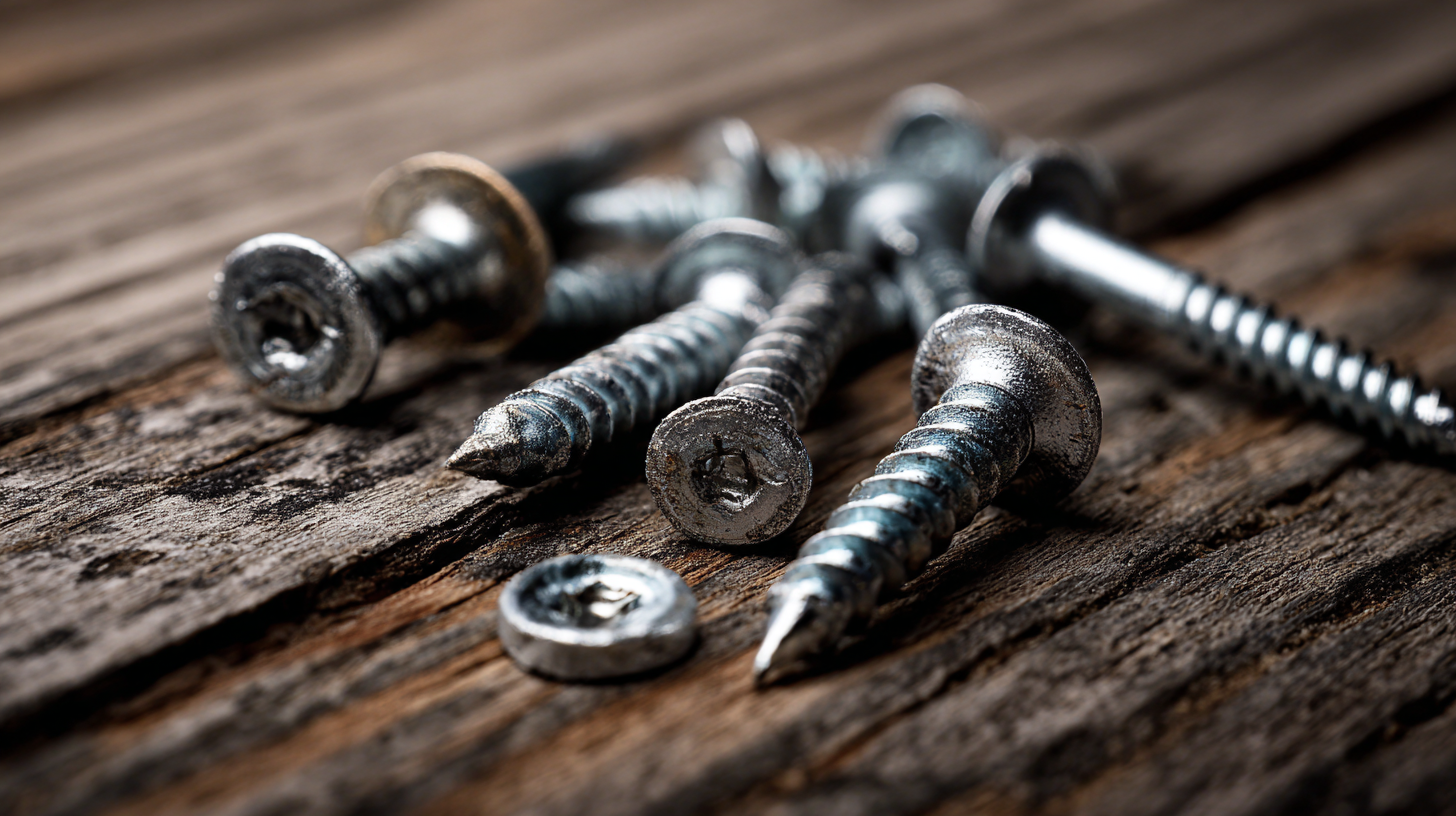
Among the top contenders, screws with self-drilling capabilities significantly simplify the installation process, reducing the time and effort required. Additionally, heavier gauge options provide enhanced support for thicker drywall panels, making them a must-have for ambitious renovations. Each of these essential drywall screws caters to different needs, from quick fixes to comprehensive remodels, empowering homeowners to tackle their projects with confidence and ease. Investing in the right screws can fundamentally improve your home improvement experience and ensure lasting results.
When embarking on a home improvement project, the choice of drywall screws is critical for ensuring durability and longevity. There are several types of drywall screws differentiated primarily by their material and coating. Steel screws, often zinc-coated, are widely used due to their balance of cost-effectiveness and strength. According to the American National Standards Institute (ANSI), zinc-coated screws offer about 30% more resistance to rust compared to their uncoated counterparts, making them ideal for indoor environments.
On the other hand, stainless steel drywall screws are recommended for high-humidity areas, such as bathrooms and kitchens. The Steel Framing Alliance highlights that stainless steel screws provide superior corrosion resistance, which is essential in these locations. Additionally, special coatings like epoxy or ceramic can offer enhanced performance in various environments. For example, an independent report from the Construction Specifications Institute (CSI) indicates that screws with epoxy coatings can withstand salt spray tests for over 1,000 hours, indicating their suitability for coastal applications. Understanding these differences not only impacts the choice of screws but also the overall success of your home improvement project.
| Screw Type | Material | Coating | Length (inches) | Head Type | Best Use |
|---|---|---|---|---|---|
| Fine Thread Drywall Screw | Steel | Black Phosphate | 1 inch | Bugle | Gypsum Board |
| Coarse Thread Drywall Screw | Zinc-Plated Steel | Zinc Coating | 1.25 inch | Flat | Wood Stud |
| Self-Drilling Drywall Screw | Stainless Steel | Plain | 1.5 inch | Wafer | Metal Studs |
| Drywall Screw with Wings | Steel | Gray Coating | 2 inch | Countersunk | Heavy-Duty Applications |
| Drywall Phillips Screw | Carbon Steel | Nickel Coated | 1.75 inch | Pan | Galvanized Applications |
| Drywall Square Drive Screw | Aluminum | Anodized | 1.25 inch | Screw Head | Non-Corrosive Applications |
| High-Low Thread Drywall Screw | Steel | Yellow Zinc | 2 inch | Bugle | Gypsum Boards |
| Collated Drywall Screw | Steel | Coated | 1.625 inch | Nib Head | Quick Installation |
| Fire-Rated Drywall Screw | Stainless Steel | Corrosion Resistant | 1.75 inch | Countersunk | Fire-Rated Applications |
When embarking on a home improvement project, the importance of selecting the right drywall screws cannot be overstated. According to industry insights, a proper screw selection can reduce wall damage by an impressive 30%. Research from the Building Materials Association reveals that improper fastening techniques are responsible for over 40% of drywall installation failures, leading to costly repairs and dissatisfaction. Choosing screws that are specifically designed for drywall not only ensures a smooth finish but also enhances the structural integrity of the walls.
The mechanics behind this statistic lie in screw design and material. High-quality drywall screws typically feature sharp threads that penetrate drywall paper without tearing, reducing the likelihood of damage to the wall surface. Studies conducted by the National Association of Home Builders indicate that using the correct screw length and gauge provides a firmer grip, which diminishes the possibility of screw pullout—one of the leading causes of wall damage. Therefore, investing time in understanding the various types of drywall screws can significantly impact project outcomes and overall quality.
When it comes to home improvement projects, selecting the right drywall screws is crucial for ensuring stability and optimal load-bearing capacity. According to the 2022 Drywall Fastening Systems Report, high-quality screws can support over 50 pounds per square foot when properly installed, making them essential for safe and durable finishes. The best screws typically feature a bugle head design that provides a flush fit in drywall, minimizing the risk of cracking when the screw is set.

When choosing drywall screws, consider materials and coatings. Galvanized screws offer superior resistance to corrosion, which is particularly important in areas prone to humidity. The National Association of Home Builders recommends drywall screws with a fine thread design for metal studs, given their increased grip and holding strength.
Tip: To enhance load-bearing capacity, pre-drill holes when working with thicker materials. Additionally, using self-tapping screws can significantly reduce installation time and improve finish quality. Aim for a consistent spacing of about 12 inches between screws to achieve maximum effectiveness and ensure consistent weight distribution across the drywall surface.
When embarking on a home improvement project, selecting the appropriate drywall screws is crucial for ensuring durability and stability. The right length and gauge of screws not only enhance the quality of your work but also the longevity of the installation. For standard drywall applications, screws typically range from 1 to 1.5 inches in length. If you are attaching drywall to metal studs, opt for screws that are specifically designed to penetrate metal, which often require a finer gauge for a secure hold.
Gauge thickness also plays a significant role in the selection process. For most drywall projects, a #6 or #8 gauge screw is ideal, providing a balance between strength and ease of installation. Thicker screws may be necessary for heavier materials or when working with thicker drywall, while thinner screws are suited for lightweight applications. Understanding the nuances of length and gauge not only ensures that you choose the right screw for the job but also contributes to a flawless finish in your home improvement endeavors.


